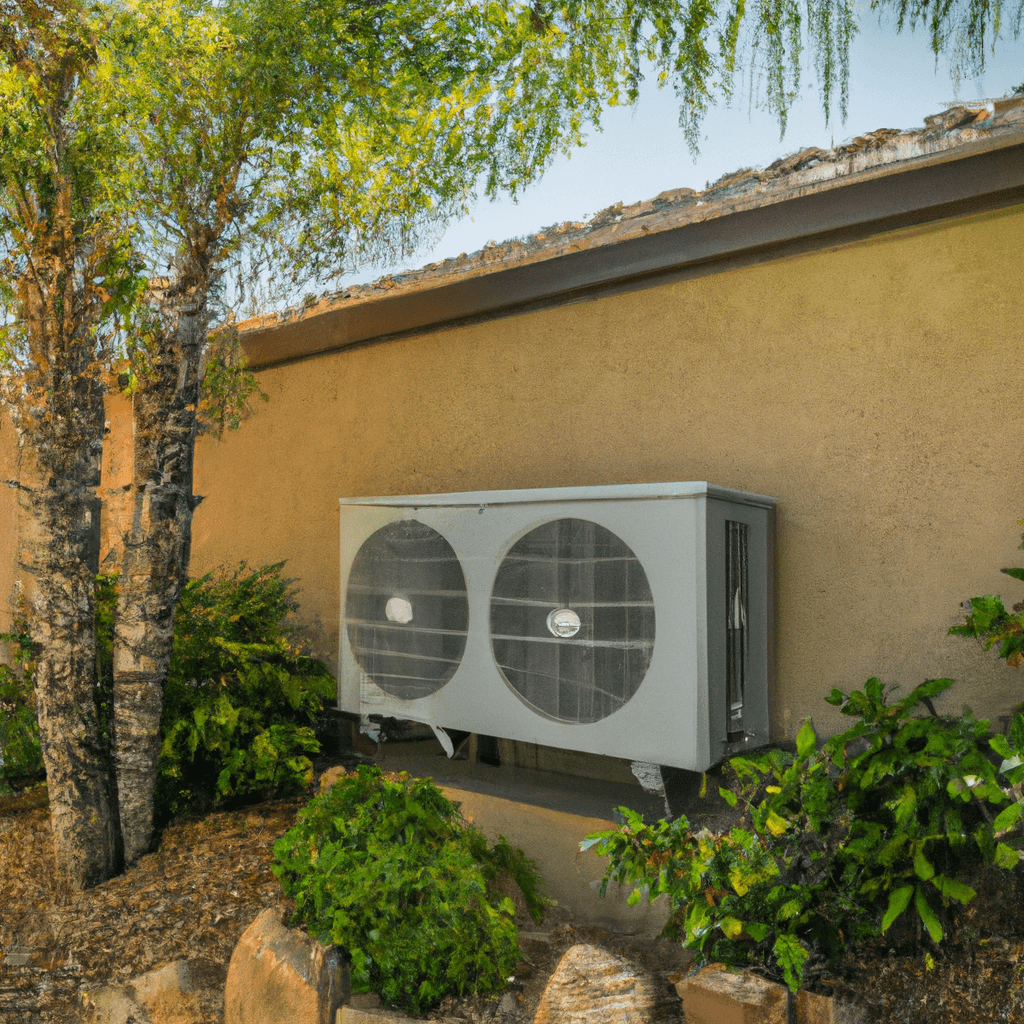What Type of Freon Should You Add to Your AC Unit?
The type of Freon used in air conditioning units varies based on the amount of refrigerant needed, along with the efficiency ratings of the unit. It’s important to know what type of Freon to add to your AC unit, as well as to understand the purpose and function of Freon. Knowing the right Freon for your AC unit will ensure that the air conditioner operates efficiently, saving you money in the long-run.
Types of Freon Used in AC Units
Today, two types of Freon are used in air-conditioning units. The first is R-22, which is a ‘refrigerant’ that helps to cool the air. R-22 is the most commonly used coolant in air conditioners. The second is R-410A, which is an HFC refrigerant known for its higher efficiency ratings. R-410A will typically be found in newer air conditioners.
Depending on your air conditioner’s specific requirements, you may need either R-22 or R-410A. If you own an older AC unit, chances are you have R-22 installed, while newer units are more likely to have been installed with R-410A. To find out which type of Freon is the correct fit for your AC unit, you’ll want to consult the manual that came with the unit.
What is Freon and How Does it Work?
Freon is a trademarked name for a series of hydrochlorofluorocarbon and hydrofluorocarbon compounds used as a coolant in air conditioning systems. The purpose of utilizing a Freon in an AC system is to transfer heat from the inside of the house, to the outside of the house, through a process called phase-change cooling.
Phase-change cooling is the process by which a liquid coolant changes to gas, by using a compressor, and then releases heat energy through controlled ventilation. This heat is transferred to the outside of the house, and then cool air is drawn inside the home.
Things to Consider When Replacing Freon
When it comes to replacing Freon in your AC unit, there are a few things to keep in mind. The first is that R-22 is considered to be less environmentally-friendly than R-410A. The higher energy efficiency rating of R-410A makes it the more desirable choice, in terms of reducing your energy costs.
Another important factor to consider is cost. Replacing R-22 is becoming increasingly expensive, due to the phase-out of this super-pressurized version of Freon from common use. Installing an R-410A coolant is the recommended alternative, as it is less expensive, more efficient and contains fewer greenhouse gases.
Finally, you’ll want to consult a professional when it comes to replacing the Freon in your AC unit. Local reliable appliance repair services will be able to advise you on the best coolant for your needs, as well as carry out the job safely and efficiently. Call (866) 311-8590 to get started.
In conclusion, it’s important to consider the right Freon, given your AC unit’s specific requirements. R-22 is the more traditional type of Freon, but given its phase-out and higher energy costs, R-410A is the more recommended choice. If you’re uncertain what type of Freon to add to your AC unit, it’s best to consult a local, reliable appliance repair service. They’ll be able to advise you on the best cooler and carry out the task as needed.



Types of Freon to Add to AC Unit
When it comes to maintaining an air conditioning (AC) unit, preventive action is the key to avoiding costly repairs and long-term issues. To ensure optimal performance, manufacturer recommendations, local appliance companies, and HVAC technicians must be consulted regarding the types of Freon to add to the AC unit. This article will discuss the necessary steps and provide a detailed itemized list of best practices to follow so that AC units remain in good working order.
Check Manufacturer Recommendations
The first and most important step for ensuring optimal performance for an AC unit is to consult the manufacturer’s recommendations regarding the types of Freon to add to the AC unit. The manufacturer’s manual will provide the best guidance on type, quantity, and frequency of Freon needed for the particular AC unit. Adhering to manufacturer guidelines can help to ensure efficient operation and avoid costly repairs.
Secure Local Expertise
It is also a good idea to consult a local appliance company or HVAC technician for advice about Freon for an AC unit. These experts should have the knowledge to properly install and maintain the AC unit. Additionally, a local technician will have the necessary experience to recommend the types of Freon that would best suit a particular AC unit make and model.
Itemized List of Best Practices
To ensure optimal performance and longevity of an AC unit, it is essential to follow these important best practices when adding Freon:
-
Monitor Freon Levels: Frequently monitor the levels of Freon in the AC unit to prevent any issues. An HVAC technician can help to make sure that the Freon level is adequate for the AC unit in order to maintain a comfortable temperature in the home and avoid costly repairs.
-
Use quality Freon: Make sure to always use quality Freon that is approved by the manufacturer of the AC unit. Low-quality Freon may fail to properly lubricate the unit’s parts, leading to a reduction in performance and increase in repair costs.
-
Recharge Freon: Refill or recharge the Freon in the AC unit at least once a year to ensure optimum performance. An HVAC professional can help with recharging the Freon, as well as identify any leaks that may be present.
-
Check for Leaks: Inspect the AC unit for any signs of Freon leaks. A leak can cause the AC unit to operate inefficiently, reduce the cooling power of the unit, and require costly repairs.
-
Schedule Tune-Ups: Schedule regular tune-ups to ensure the AC unit is running efficiently. During a tune-up, a professional technician will check for Freon leaks, inspect the internal parts for wear and tear, and ensure that the unit is functioning properly.
Following these best practices when adding Freon to an AC unit will go a long way toward avoiding costly repairs and maintaining optimal performance. It is important to check the manufacturer’s manual, consult a local appliance company or HVAC technician, and follow the itemized list of best practices detailed above. With these steps, homeowners can rest assured that their AC unit will remain in good working order and last for years to come.
Average Repair Cost For Types of Freon to Add to AC Unit
Taking into account current prices (20% higher) in the city of California, the minimum repair or installation cost for Types of Freon to add to AC Unit is around $500, though these types of issues can vary in complexity and thus price. For example, if the AC unit needs to be recharged, as well as its air filter, insulation, and compressor replaced, the cost can rise to around $2000.
In terms of needed parts, in addition to the Freon, an expansion valve, capillary tube, accumulator, and filter dryer may be required, with materials amounting to approximately an additional $150 to $200.
For professional advice and reliable installation/repair services, Local Reliable Air Conditioning & Heating can be contacted at (866) 311-8590.
Types of Freon to Add to AC Unit
When it comes to keeping your air conditioner running smoothly, it’s important to understand the different types of Freon that are available to be added to your AC unit. Reliable Air Conditioning & Heating, a family-owned company in California, has the expertise to handle any of your AC needs.
Reliable’s highly skilled technicians have a minimum of 5 years experience in appliance and HVAC repair and installations. They can provide proper maintenance on different Types of Freon to add to AC unit, or any other AC or heating repair you might require.
The company is licensed and insured, so you can be sure the technicians know what they are doing. They offer same-day services and a 90-day warranty on all repairs – all for a fair, affordable price.
So if you’re looking for a reliable AC and heating repair company in California, look no further than Reliable Air Conditioning & Heating. Their highly skilled technicians, commitment to customer service, and same-day services truly make them stand out in the industry. They have the know-how to get the job done right, the first time – and, most importantly, the knowledge of the different Types of Freon to add to AC unit.
FAQ
What Type of Freon Should You Add to Your AC Unit?
The type of refrigerant in your AC unit largely depends on the year it was made. Due to environmental regulations, most new AC units use one of two types of refrigerants: R-410A and R-22. R-22 is considered an ozone-depleting substance and is slowly being phased out.
Types of Freon to Add to AC Unit
The two most common types of refrigerants for AC units are R-410A and R-22.
-
R-22, also known as Freon, has been used in air conditioning systems since the 1970s. Because of its impact on the environment, its production is gradually being phased out.
-
R-410A, also known as Puron or Genetron AZ-20, is an HFC (hydrofluorocarbon) refrigerant that has replaced R-22 in most new units. It’s a newer type of refrigerant with less of an environmental impact.
If you’re unsure of what type of refrigerant your AC unit requires, it’s best to contact a professional for advice. For reliable appliance repair services, call Local Reliable Appliance Repair at (866) 311-8590.

